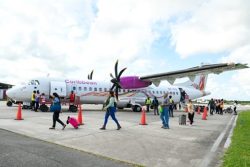BERLIN (Reuters) – Top European Union and NATO officials called yesterday for continued dialogue with Moscow, while maintaining pressure on Russia over its actions in Ukraine and its support for Syria’s bombardment of civilians in Aleppo.
European Parliament President Martin Schulz told an event hosted by the German newspaper Passauer Neue Presse that the EU’s sanctions against Moscow were linked to the Minsk peace agreement that was supposed to end the conflict in eastern Ukraine and could only be lifted when the conditions for their withdrawal had been met.
Schulz condemned in harsh terms Russia’s actions in Ukraine and its support for right-wing nationalists in Europe. But he also said it was vital to maintain some kind of dialogue, given Russia’s geographic proximity and the hope of promoting democracy in the longer term.
“I can’t just wish Russia away. We should not declare Russia to be a pariah. Instead, we should tell Moscow, ‘We condemn what you are doing wrong, but will keep the channel for dialogue open for when you’re ready,'” Schulz told the event.
Western countries have been increasingly vocal in their condemnation of Moscow’s support for the regime of Syrian President Bashar al-Assad. That condemnation has intensified since Russian and Syrian warplanes opened their biggest offensive of the five-year-old civil war against rebels holding parts of Aleppo.
Some European lawmakers have called for the EU to impose fresh sanctions against Russia for its role in the mounting civilian death toll in Syria.
France and the United States have also called for an investigation into war crimes they say have been committed by Syrian and Russian forces in eastern Aleppo.
For its part, Russia blames the Obama administration for what it calls a sharp deterioration in U.S.-Russia ties.
European Council President Donald Tusk told the event the situation in Europe was particularly dangerous for frontline eastern European states like his native Poland, Slovakia and the Baltic States.
Asked whether Europe could relax existing sanctions or impose fresh sanctions against Moscow for its military backing of Assad, Tusk told the same panel discussion that the only answer was to prolong the sanctions that were already in place.
He said the situation with Russia had grown worse since the EU last extended its sanctions in June, citing Russia’s involvement in the bombing of Aleppo.
“It’s obvious for me today, the only way is to prolong the sanctions against Russia,” he said. “Otherwise it will be a clear capitulation.”
NATO Secretary General Jens Stoltenberg told the event NATO was continuing its largest buildup in eastern Europe since the end of the Cold War, but did not want to unleash a new Cold War.
“We don’t want to increase our presence (further), but we’ll continue to send a signal that our troops can be reinforced if needed,” he said. “It’s very important to avoid a new Cold War. We don’t want a new arms race.”





